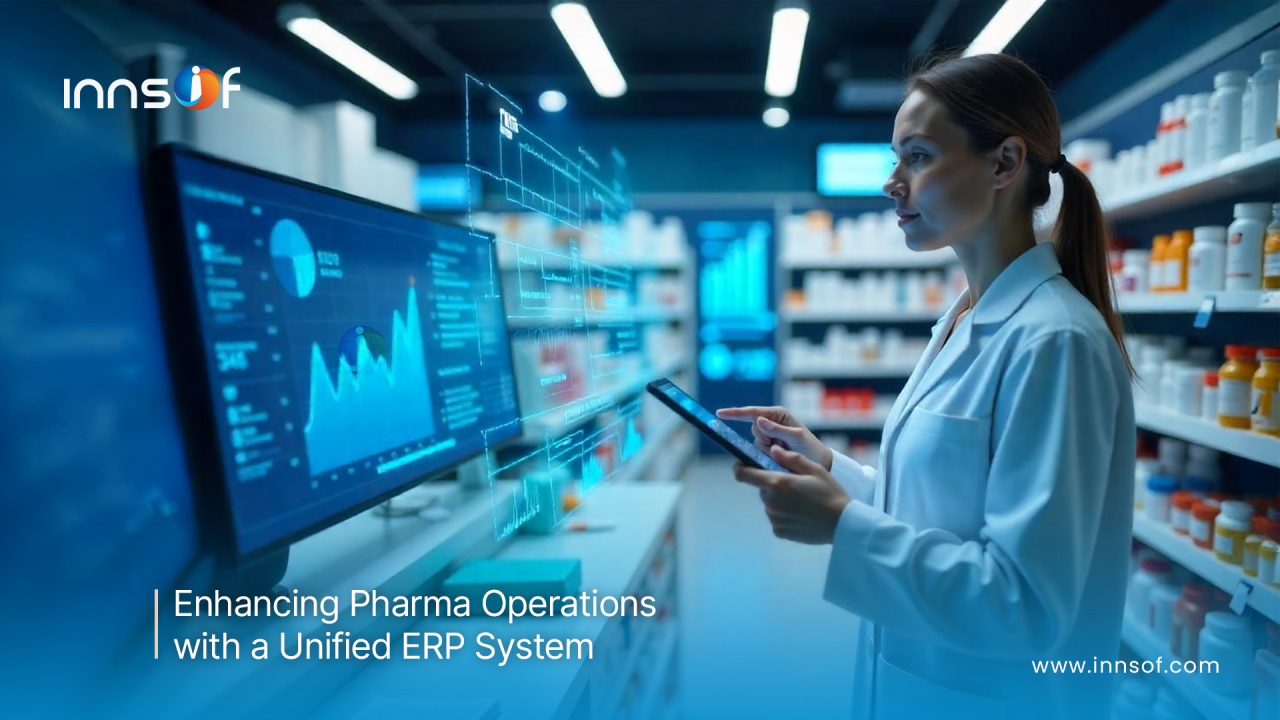How an integrated ERP system optimizing your pharma operations

Understanding the Core Components of Pharma ERP
- Inventory Management: Ensures accurate stock tracking, prevents shortages, and optimizes storage.
- Supply Chain Management: Streamlines the movement of products and reducing bottlenecks.
- Procurement: Automates purchasing decisions, helping businesses negotiate better deals with suppliers.
- Point of Sale (POS): Facilitates quick and accurate billing at pharmacy counters, supports promotions, and integrates with inventory for real-time updates.
- Finance & Accounts: Manages all financial transactions, budgeting, and compliance, providing a clear picture of profitability and cash flow.
- Fixed Assets Management: Tracks and manages assets throughout their lifecycle, ensuring proper depreciation and maintenance planning.
- Customer Relationship Management (CRM): Enhances customer engagement tracks interactions, and improves service quality.
- Human Resource Management System (HRMS): Manages employee data, payroll, and performance tracking.
- E-Commerce Integration: Supports online ordering and transactions for both B2B and B2C customers.
Advantage of choosing ERP System
1. Improved Efficiency and Productivity:
- ERP systems automate repetitive tasks, reduce manual data entry, and eliminate redundant processes, saving time and reducing errors.
- Departments like finance, HR, supply chain, and sales can share data seamlessly, improving collaboration.
2. Centralized Data Management:
- All critical business data is stored in a single database, providing a & quot;single source of truth.& quot;
- This eliminates data silos, ensures consistency, and enables better decision-making.
3. Cost Savings:
- By streamlining operations and improving resource allocation, ERP systems reduce operational costs.
- Better inventory management, procurement, and financial planning further contribute to cost efficiency.
4. Enhanced Customer Experience:
- Integrated CRM and sales modules improve customer relationship management.
- Faster order processing, accurate inventory tracking, and better communication lead to higher customer satisfaction.
5. Better Supply Chain Management:
- ERP systems optimize supply chain operations by improving demand forecasting, inventory management, and supplier coordination.
Integration with Warehouses and Retail Outlets
The warehouse ensures a steady supply of pharmaceutical products, while the outlets (such as pharmacies and medical stores) cater to end consumers.
● Warehouse: Receives goods from suppliers and manages bulk inventory.
● Outlets (Pharmacies): Serve as distribution points where customers purchase medicines and healthcare products.
With the help of Pharma ERP, businesses can maintain a real-time inventory update, ensuring that all outlets are well-stocked and customer demands are met promptly.
The Innsof Pharma ERP system is a powerful solution tailored for pharmaceutical businesses looking to streamline operations, enhance efficiency, and optimize profitability. By integrating various business functions under one unified platform, it allows companies to stay competitive in a rapidly evolving market.

